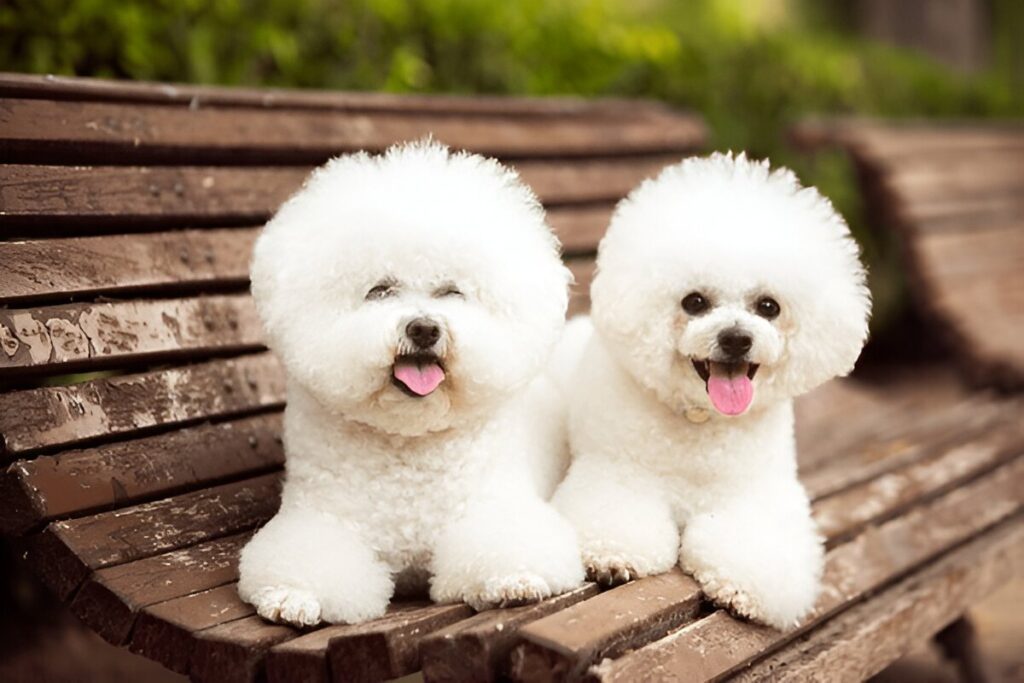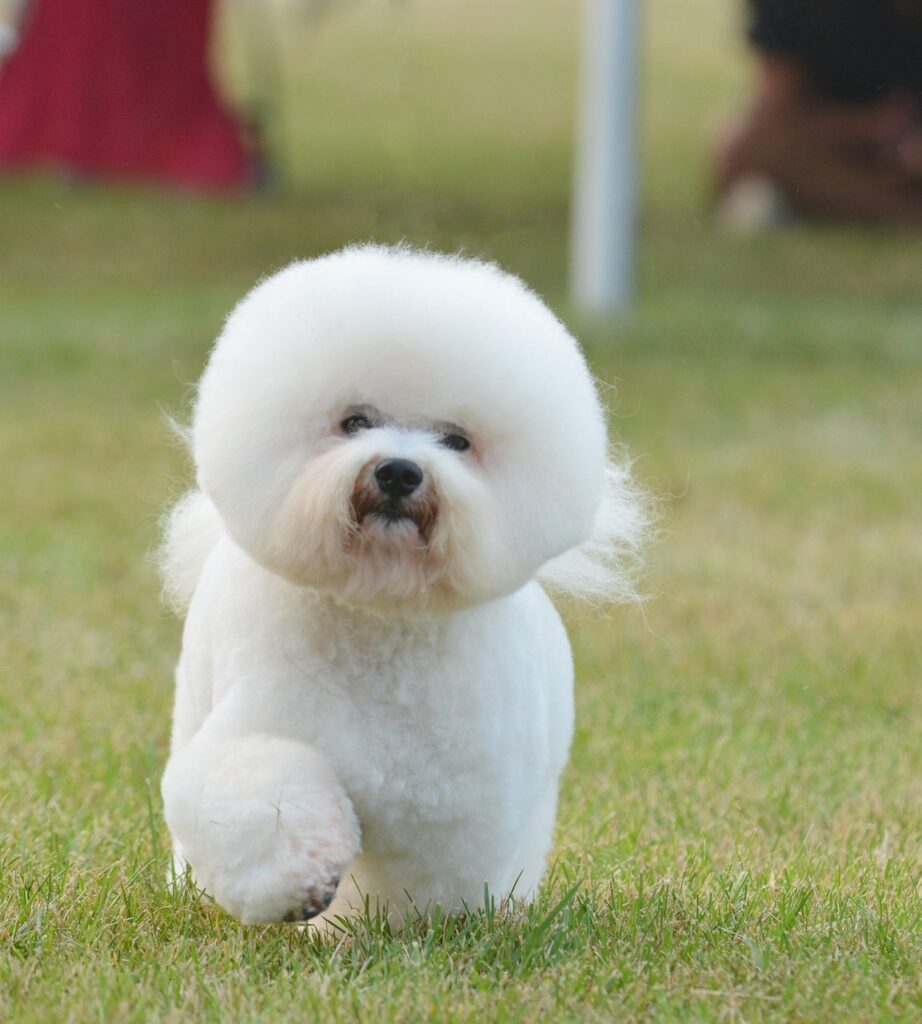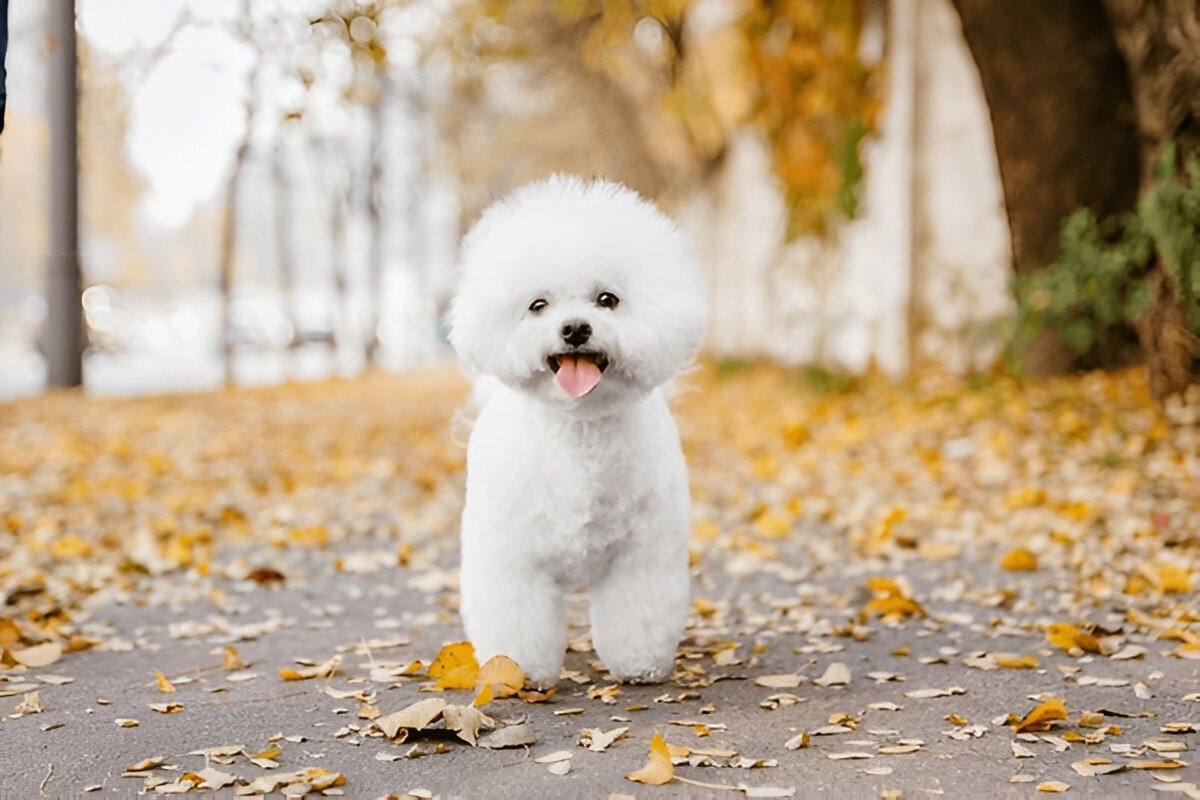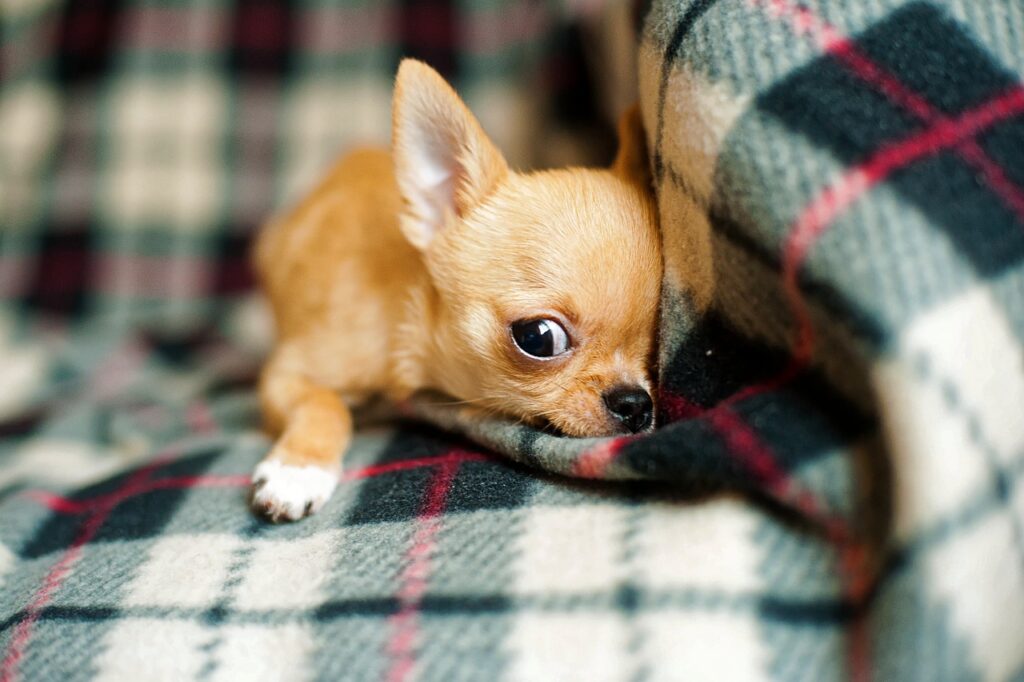The Bichon Frise: A Fluffy Bundle of Joy
The Bichon Frise is a small, cheerful dog breed known for its fluffy white coat, playful personality, and affectionate nature. With their happy-go-lucky attitude and charming looks, Bichons have become a favorite among dog lovers worldwide. Whether they’re prancing around the house or cuddling on your lap, these little dogs bring a smile to everyone they meet. In this blog, we’ll explore the history, characteristics, temperament, and care requirements of this delightful breed.
A Brief History of the Bichon Frise
The Bichon Frise has a long and storied history that dates back to the 13th century. The breed is believed to have originated in the Mediterranean region, where it was developed from the Barbet, a water spaniel. The name “Bichon” comes from the French word bichonner, which means “to pamper,” reflecting the breed’s status as a beloved companion dog.
The Bichon Frise gained favor with European aristocracy during the Renaissance and became a common companion for French, Spanish, and Italian royal courts. They could be found in the courts of kings and queens, being spoiled and adored. As time went on, the breed gained popularity and has since become a popular family pet, show dog, and even used as a therapy dog.
Physical Characteristics of the Bichon Frise

The Bichon Frise is small and sturdy, with an effortless, curly coat that makes him look like a stuffed animal. Here are some key physical traits:
Size: Bichons stand 9 to 12 inches tall at the shoulder and weigh between 10 and 18 pounds.
Build: They have a compact, well-proportioned frame with a level back and a plumed tail that curls over their back.
- Coat: Bichons have a soft, curled coat, pure white. A few of them show slight shades of cream or apricot. Since their coat does not shed as much, it also makes them be considered hypoallergenic pets.
- Ears and Tail: They have drop-shaped ears covered in long, hanging hair, and their tail is carried curled over the back with a high-borne.
- Expression: They possess sweet, expressive faces with dark, round eyes and a black nose.
Temperament and Personality
The Bichon Frise has been labeled as a perky, gentle, and playful pal. Following is what contributes to their nature:
- Friendly and Socializing: The Bichons are a very social dogs that get along well with everyone, kids, and pets. They love being around humans and like to join in on family activities.
- Playful and Energetic: Bichons burst with energy and love playing. They love to play fetch, tug-of-war, and go on an adventure.
- Affectionate and Loving: Bichons attach much to their families and are very affectionate. They have been referred to as “velcro dogs” because they stick to owners like glue.
- Intelligent and Trainable: Bichons are very intelligent and love to please, thus they are relatively easy to train. They do great in obedience, agility, and other dog sports.
- Good with Families: Bichons are excellent with children and other pets if socialized properly. They are patient and tolerant, making them excellent family dogs.
- Alert and Curious: Bichons are very curious and great watchdogs. They will alert their owners to anything unusual in no time.
Caring for a Bichon Frise

Bichons are low-maintenance dogs, but their fluffy coat and playful nature mean they have specific care requirements. Here are some key aspects of their care:
- Exercise: Bichons are active dogs that require daily exercise to keep them fit and mentally stimulated. Short walks, playtime, and interactive toys are usually sufficient.
- Diet: A balanced diet with high-quality dog food is essential to maintain their health. Be mindful of portion sizes to prevent obesity, as Bichons can gain weight easily.
- Grooming: Their curly coat requires regular grooming to prevent tangles and mats. Daily brushing is recommended, along with regular baths and professional grooming every 4-6 weeks. Many owners opt for a shorter “puppy cut” for easier maintenance.
- Training and Socialization: Early socialization and consistent training are crucial for Bichons. They respond best to positive reinforcement and enjoy learning new tricks and commands.
- Health: Bichons are generally healthy dogs, but they do have certain health issues that may crop up from time to time. These include dental problems, allergies, and patellar luxation, but all these problems can be avoided or managed with good veterinary check-ups and a healthy lifestyle.
Bichons in Popular Culture
Bichons have earned their places in popular culture, featuring in movies, television series, and even mascots. Their charming appearance combined with their cheerful personality makes them popular with dog fanciers and celebrities alike.
Is the Bichon Frise Right for You?
Bichons are excellent companions for those individuals and families seeking a small, affectionate, energetic companion. They are appropriate for apartment living and don’t need a huge yard. However, their grooming necessities and high-energy level make them needing an owner that can attend to their needs correctly. If one wants a loving and playful dog that will give him endless pleasure, a Bichon Frise may be the correct choice.
Final Thoughts
The Bichon Frise is a breed that combines charm, intelligence, and a heart full of love. Whether they are prancing around the house, playing in the yard, or just cuddling on your lap, Bichons have a way of brightening your day. With the right care, training, and love, a Bichon Frise can be a loyal and devoted companion for years to come.
If you’re considering adding a Bichon Frise to your life, be sure to research reputable breeders or consider adopting from a rescue organization. These incredible dogs deserve homes where they can thrive and continue to showcase their unique charm.
Yuns Legdm is a passionate advocate for pet care and the founder of this website, dedicated to providing valuable information for fellow pet lovers and veterinary professionals worldwide. With a deep love for animals, Yuns created this platform to connect passionate pet owners with expert insights from veterinarians around the globe.
This website grows with you—the passionate pet owners and veterinary experts—creating a trusted space where knowledge, experience, and love for animals come together. Whether you’re seeking advice on pet health, nutrition, or general well-being, this platform is here to support you on your journey of responsible and loving pet care.





